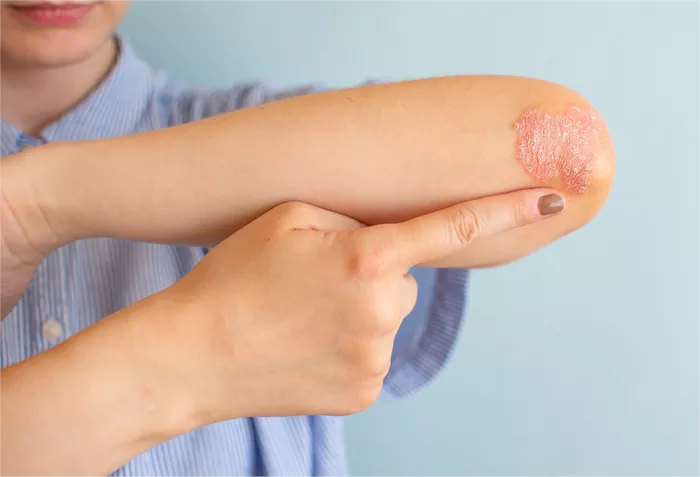Allergic reaction hives, medically known as urticaria, can be both uncomfortable and distressing for those who experience them. These raised, itchy welts on the skin can be triggered by various allergens, such as certain foods, medications, insect stings, or environmental factors like pollen or pet dander. While hives often subside on their own within a few hours or days, they can cause significant discomfort in the meantime. Fortunately, several medications are available to help manage symptoms and provide relief. In this article, we’ll explore some of the best medicines for treating allergic reaction hives, including both over-the-counter and prescription options.
Antihistamines:
Antihistamines are the cornerstone of treatment for allergic reaction hives. These medications work by blocking the effects of histamine, a compound released by the immune system in response to allergens, which causes the characteristic itching, swelling, and redness associated with hives. There are two main types of antihistamines: first-generation and second-generation.
First-generation antihistamines, such as diphenhydramine (Benadryl) and hydroxyzine (Atarax), are effective at relieving symptoms but can cause drowsiness and impair cognitive function, making them less than ideal for daytime use. However, they may be useful for managing hives at night when sedation is less of a concern.
Second-generation antihistamines, including cetirizine (Zyrtec), loratadine (Claritin), and fexofenadine (Allegra), are preferred for daytime use due to their non-sedating properties. These medications provide effective relief from itching and swelling without causing significant drowsiness, allowing individuals to carry on with their daily activities.
For mild to moderate allergic reaction hives, over-the-counter antihistamines are often sufficient to provide relief. However, for more severe or persistent symptoms, prescription-strength antihistamines may be necessary. Your doctor may recommend a higher dose of a second-generation antihistamine or combination therapy with both a first-generation and second-generation antihistamine for better symptom control.
Corticosteroids:
In cases where antihistamines alone are not effective in managing allergic reaction hives, corticosteroids may be prescribed. Corticosteroids work by reducing inflammation and suppressing the immune response, thereby alleviating symptoms such as itching and swelling associated with hives. These medications are typically prescribed for short-term use to provide rapid relief during acute flare-ups.
Oral corticosteroids, such as prednisone or prednisolone, are often used for severe cases of allergic reaction hives or when hives are accompanied by other symptoms, such as angioedema (swelling deeper in the skin). These medications can provide quick and effective relief but may be associated with side effects, including weight gain, mood changes, and increased risk of infections, especially with prolonged use.
In some cases, corticosteroids may be administered topically in the form of a cream or ointment to reduce inflammation and itching localized to specific areas of the skin. However, topical corticosteroids are generally less effective for widespread hives and are not recommended for long-term use due to the risk of skin thinning and other adverse effects.
Immunomodulators:
For chronic or recurrent cases of allergic reaction hives that do not respond adequately to antihistamines or corticosteroids, immunomodulatory medications may be considered. These medications work by modulating the immune system to prevent the release of inflammatory compounds that contribute to the development of hives.
One such immunomodulatory medication is omalizumab (Xolair), a monoclonal antibody that targets immunoglobulin E (IgE), a key player in the allergic response. By blocking IgE, omalizumab helps reduce the frequency and severity of allergic reaction hives in individuals who have not responded to other treatments. Omalizumab is administered by injection and is typically reserved for severe cases of chronic urticaria that have not responded to conventional therapy.
Other immunomodulatory medications, such as cyclosporine and methotrexate, may be used off-label for the treatment of chronic urticaria in select cases. However, these medications carry a higher risk of side effects and are usually reserved for cases that have not responded to other treatments.
Other Therapies:
In addition to medications, several other therapies may be helpful in managing allergic reaction hives and reducing the frequency and severity of flare-ups. These include:
1. Avoidance of Triggers: Identifying and avoiding triggers that can cause allergic reaction hives is an essential part of managing the condition. Common triggers include certain foods, medications, insect stings, and environmental factors such as pollen or pet dander. By avoiding these triggers whenever possible, individuals can help prevent hives from occurring.
2. Cool Compresses: Applying cool compresses or taking cool baths can help soothe itching and reduce inflammation associated with allergic reaction hives. Cold temperatures help constrict blood vessels and reduce the release of histamine, providing temporary relief from symptoms.
3. Stress Management: Stress can exacerbate allergic reaction hives by triggering the release of inflammatory compounds in the body. Practicing stress-reduction techniques such as deep breathing, meditation, or yoga can help alleviate stress and minimize the frequency and severity of hives flare-ups.
4. Moisturizers: Keeping the skin well-hydrated with moisturizing creams or lotions can help prevent dryness and itching associated with allergic reaction hives. Look for products that are fragrance-free and hypoallergenic to minimize the risk of irritation.
Conclusion
Allergic reaction hives can be a source of significant discomfort and frustration for those affected by them. However, with the right combination of medications and therapies, symptoms can be effectively managed, allowing individuals to lead a more comfortable and fulfilling life. Antihistamines are typically the first line of treatment for hives, providing relief from itching and swelling associated with acute flare-ups. For more severe or persistent cases, corticosteroids or immunomodulatory medications may be necessary to control symptoms and prevent future outbreaks. Additionally, lifestyle modifications such as avoiding triggers, using cool compresses, managing stress, and moisturizing the skin can help minimize the frequency and severity of hives flare-ups. If you experience allergic reaction hives, it’s essential to work closely with your healthcare provider to develop a personalized treatment plan that addresses your individual needs and concerns. With proper management, allergic reaction hives can be effectively controlled, allowing you to enjoy a better quality of life.
Related Topics:


























